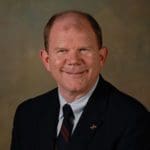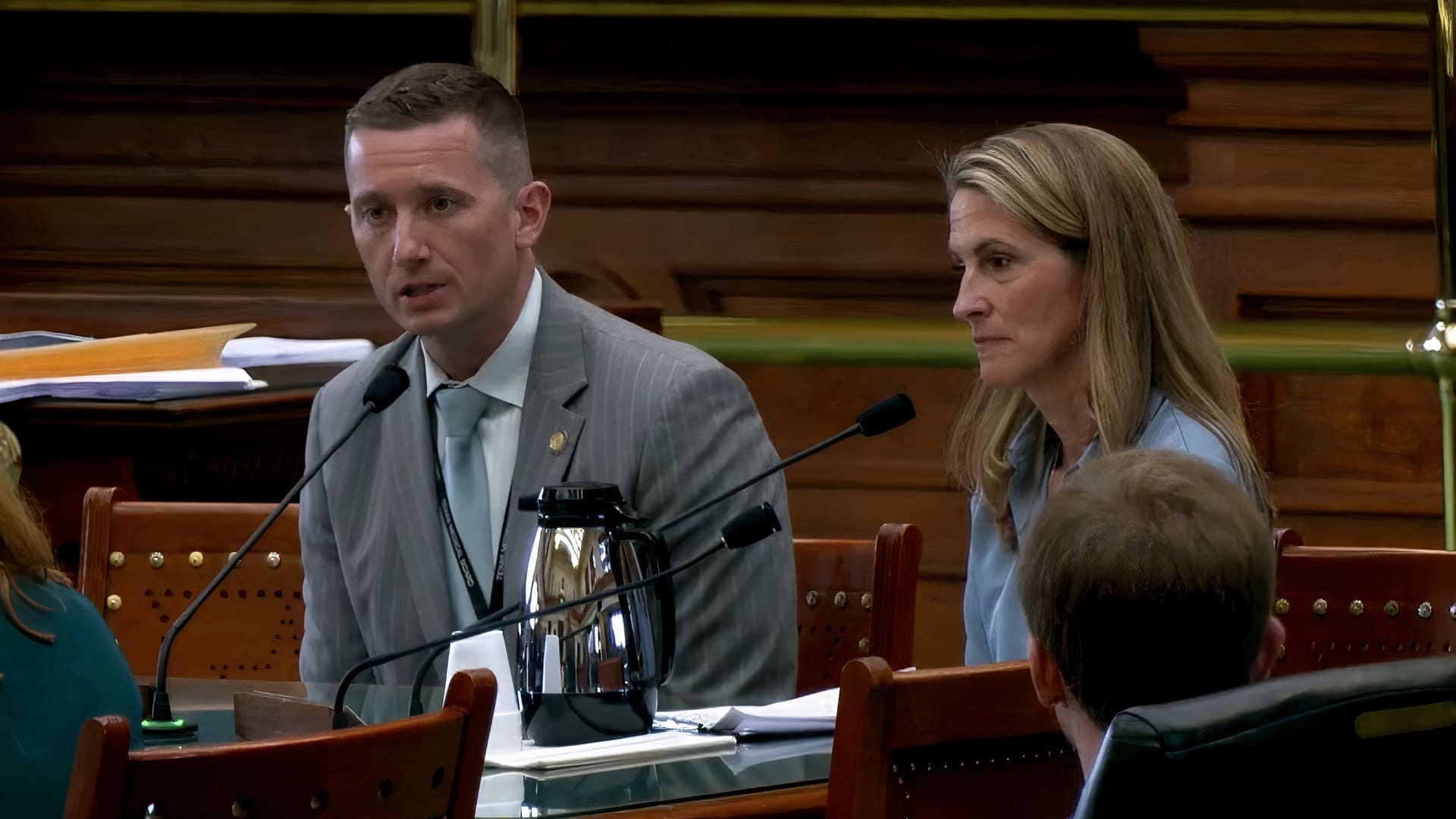The uncertainties we all face today in the midst of the government shutdown of the economy offer a great opportunity for Americans to learn about the connection between liberty and prosperity.
While virtually everyone agrees that we need to protect ourselves from the COVID-19 virus, it is not so clear to many that the government is the proper entity for mandating how we go about this.
Should we be washing our hands, practicing social distancing, and restricting some economic activities? For the most part, yes. But couldn’t—and wouldn’t—we be doing these things ourselves in connection with our employers, businesses, charities, churches, and other civic institutions without the government forcing us to do them? And doing them more effectively?
It is uncertain what the short- and long-term harm to prosperity of the government’s response to COVID-19 will be. However, we already have a pretty good track record of the economic harm caused by governments all over the world when it comes to limiting access to an affordable and reliable supply of electricity.
That’s one of my big takeaways from Robert Bryce’s excellent new book, “A Question of Power.”
While explaining how mankind has greatly benefitted from electricity, he points out that not everyone has benefitted equally:
“Roughly 3.3 billion people—about 45 percent of all the people on the planet—live in places where per-capita electricity consumption is less than 1,000 kilowatt-hours per year, or less than the amount used by my refrigerator.”
That consumption is also less than a quarter of the 4,000 kilowatt-hours per year per capita electricity use that Bryce suggests is “considered the minimum for living a long, high-quality life.”
So why is it that almost half of the world’s population are living in “Unplugged” countries like El Salvador, the Philippines, Bolivia, Pakistan, and India where they “are using about the same amount of electricity as an average resident of Chicago did back in 1925?”
Interestingly, one aspect of this seems to be what God you believe in. Bryce notes that “while Christians are spread fairly evenly among the three segments, about two-thirds of the world’s Muslims live in Unplugged countries and about 99 percent of the world’s Hindus live in the Unplugged world.” In the “High-Watt World,” Christians outnumber Muslims by five to one.
Source: “A Question of Power”
From a biblical and historical perspective this makes perfect sense. The Triune God of Scripture is the God of liberty. Christ came “to proclaim liberty to the captives” and “to set at liberty those who are oppressed.”
This is first to be taken in a spiritual sense, as we “who were once slaves of sin, … having been set free from sin, have become slaves of righteousness” (Romans 6:17-18 ESV). Yet many authors, such as Rodney Stark, have shown how Christianity’s understanding of man being made in the image of God and its consequent “emphasis on human freedom and secure property rights” led to the very societies (largely in the West) where liberty and humans prosper most today and, not coincidentally, use the most electricity.
Bryce lays out very clearly the connection between increased electricity use and increased health and prosperity. For instance, he examined a number of studies that found “unidirectional causality between electricity consumption and economic growth.” That is, electricity use drives economic growth. While electricity drives economies, it is also clear that greater wealth increases electricity consumption. That makes sense. As people get wealthier, they consume more electricity because they can afford more electrical devices.
The reason for this is that “by using hydrocarbons (at first coal, then later oil and natural gas) humans were able to harness ever increasing quantities of power and do so in ever-denser packages. In place of animal power, sun power, and wind power, factories began using advanced waterwheels and coal-fired steam engines.”
Yet this progress has not taken place uniformly. Bryce explains that the three critical components to an affordable and reliable supply of electricity—integrity, capital, and fuel—have often been in short supply in many parts of the world.
By integrity, Bryce means that the system must not “leak,” either because of poor design, poor maintenance, or theft. This often happens, however, in impoverished countries operating without the rule of law because the elites have “organized society for their own benefit at the expense of the vast mass of people.”
Capital is the second critical component. “Keeping theft and corruption at a minimum is imperative because theft robs the grid of the capital it needs,” says Bryce. In fact, it robs entire countries of the capital they need to prosper. Particularly when the theft comes from oppressive governments through high taxes, heavy regulation, confiscation of property, and inflation of the money supply. People in countries like this often can’t afford to build a reliable grid, or much of anything else.
The last of the three “key determinants of the quality, cost, and cleanliness of the electricity” that we consume is fuel: “Without fuel, you can’t make electrons move.” And Bryce makes it clear that the fuel of choice around most of the world is coal.
Why is this? For the simple reason that coal is cheap and widely available.
The world has gargantuan coal deposits. At current rates of consumption, global coal reserves are projected to last another 134 years. The United States and Australia both have more than three hundred years’ worth of coal reserves in the ground.
Add natural gas to coal, and it is clear that unlike with integrity and capital, over the last 200 years there has not been a general shortage of the affordable fuel we need to generate electricity.
At least not yet. But that is changing as the political leaders of the High-Watt World are doing their very best to make fuel more expensive and less available. In three ways.
First, they are imposing draconian controls on the use of carbon-based and nuclear fuels that do nothing to improve human health.
Second, they are taking billions of dollars from taxpayers and giving it to corporations with markets caps totaling into the hundreds of billions to subsidize wind and solar generation. In the U.S. alone, my calculations show that taxpayers have ponied up more than $80 billion since 2006; in Texas, the cost has topped $22 billion.

Top 11 Recipients of Federal Tax Credits for Wind
Source: Angela Erickson and the Texas Public Policy Foundation
Third, they are seeking to completely eliminate the use of coal as a fuel because of concern about climate change. Bryce notes that even as coal use around the world is thriving, in the U.S. “more than half of all coal plants have announced planned closures since 2010.”
If I had one nit to pick with “A Question of Power,” it would be that it takes more or less as a given that the world needs to do something to address CO2 emissions to reduce man’s effect on the climate. On this topic, there is little of the insightful analysis used elsewhere in the book challenging conventional wisdom.
Yet there is plenty to challenge, as Patrick Michaels and Caleb Stewart Rossiter explain:
“Computer models of the climate are at the heart of calls to ban the cheap, reliable energy that powers our thriving economy and promotes healthier, longer lives. For decades, these models have projected dramatic warming from small, fossil-fueled increases in atmospheric concentrations of carbon dioxide, with catastrophic consequences. Yet, the real-world data aren’t cooperating.”
The story told in “A Question of Power” (through my lens) is one of scientists, politicians, and activists holding themselves out as experts and telling us how to power the world while taking our money to make us pay for their ideas.
Which gets us back to COVID-19. It is interesting to note is that even though the COVID-19 models developed by the experts have failed even faster than the climate change models, politicians all across the world are taking advice from these experts about how to deal with this pandemic.
Bryce doesn’t focus as much on the elites and government in his book as I do here, but he does give us plenty to think about when it comes to the future of powering this world. In particular, he makes a compelling case that the demand for electricity is going to continue to grow and displays his optimism that we’ll succeed in our efforts to meet this demand:
“Electricity has conferred on us a bit of the creative power that God showed in Genesis. With the flip of a switch, we can kill the anti-God and banish darkness. With a touch of our mobile phones we can ensure safe passage through a strange hotel or garage at night. With quadrillions of electrons at our beck and call, we can create as much light as we want.”
I join him in that optimism, with one caveat: the path to increased electrification and protection from disease—and everything else—will continue to be harder than needed until people realize that the best path for moving forward won’t come from dictates handed down by experts on high but from the wisdom of God expressed through billions of daily decisions made by a free and repentant people operating in free markets.
This commentary was submitted and published with the author’s permission. If you wish to submit a commentary to Texas Scorecard, please submit your article to submission@texasscorecard.com.






